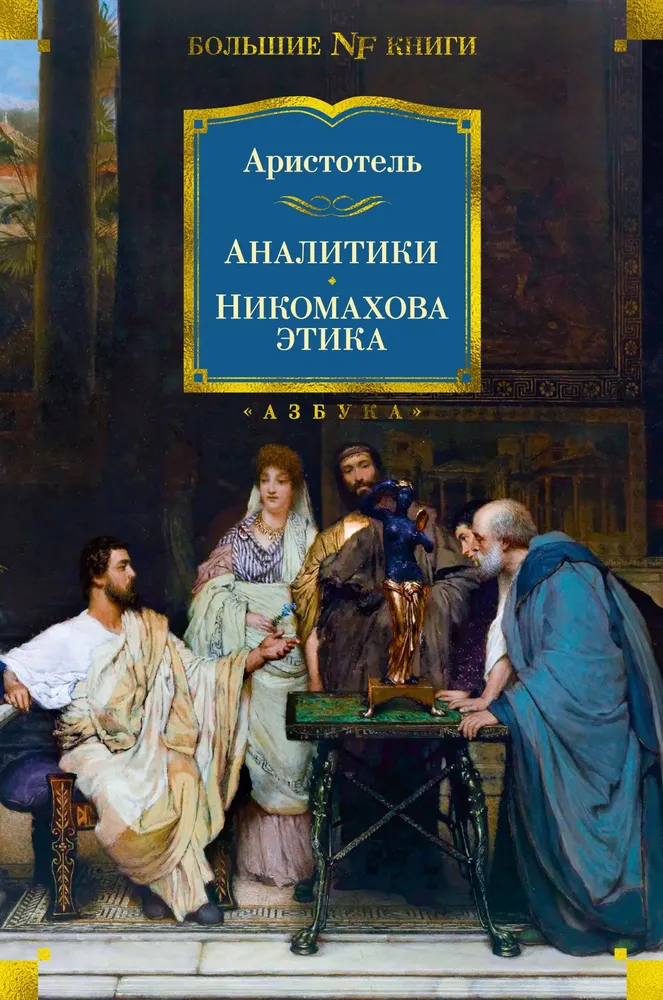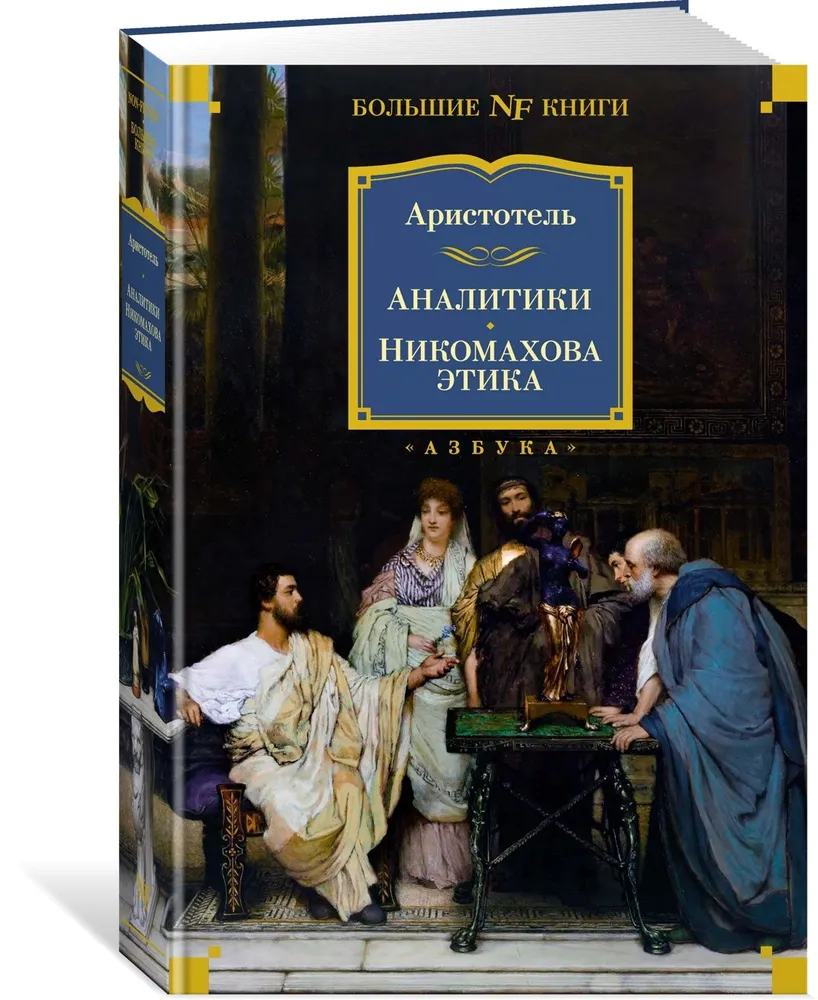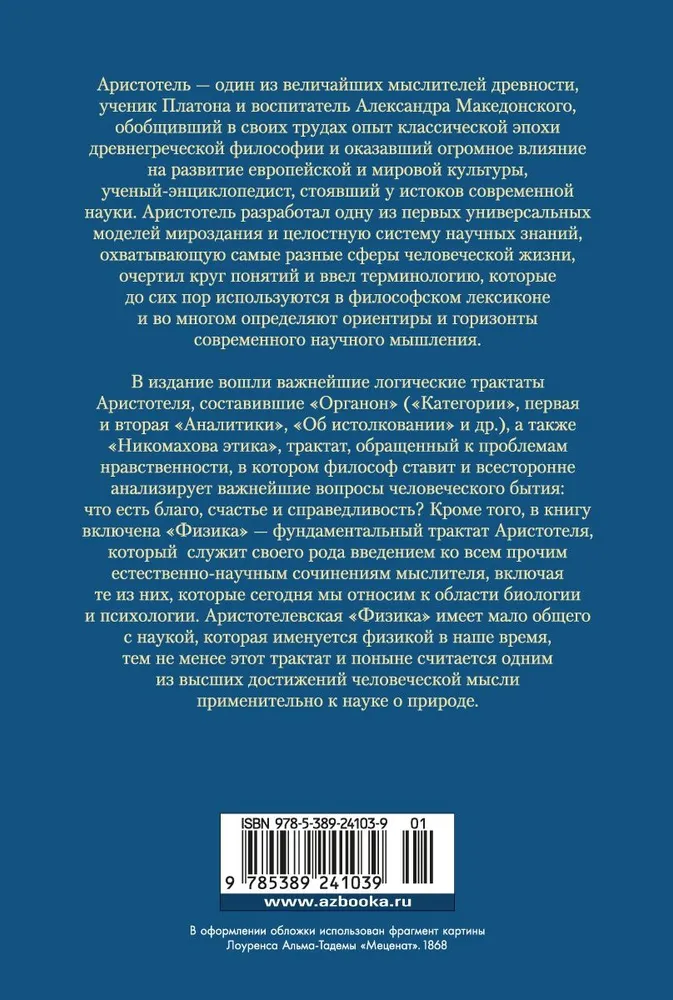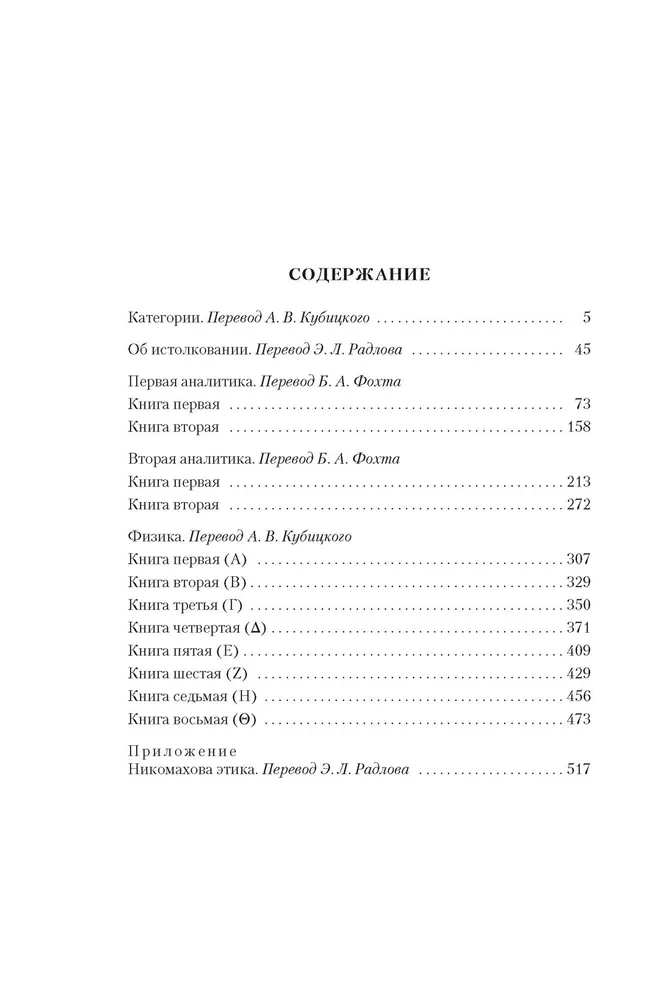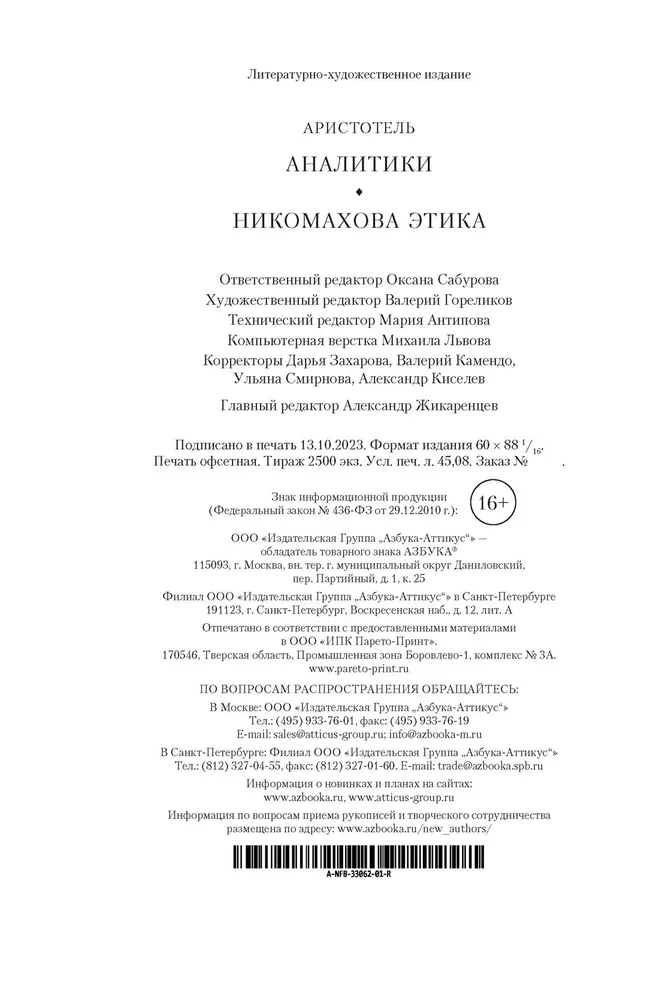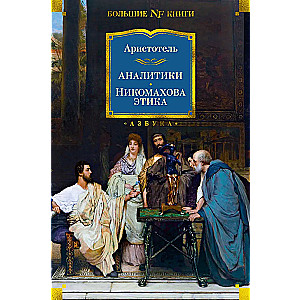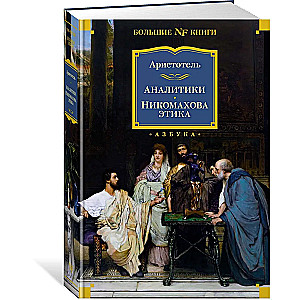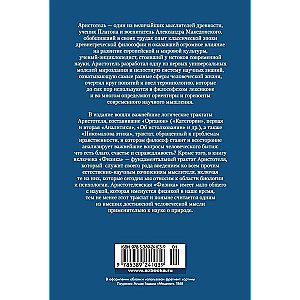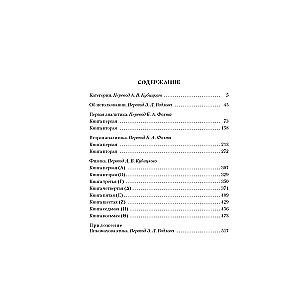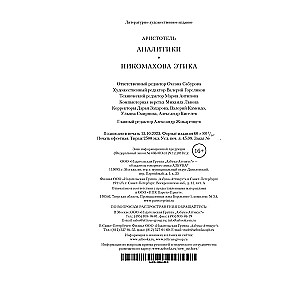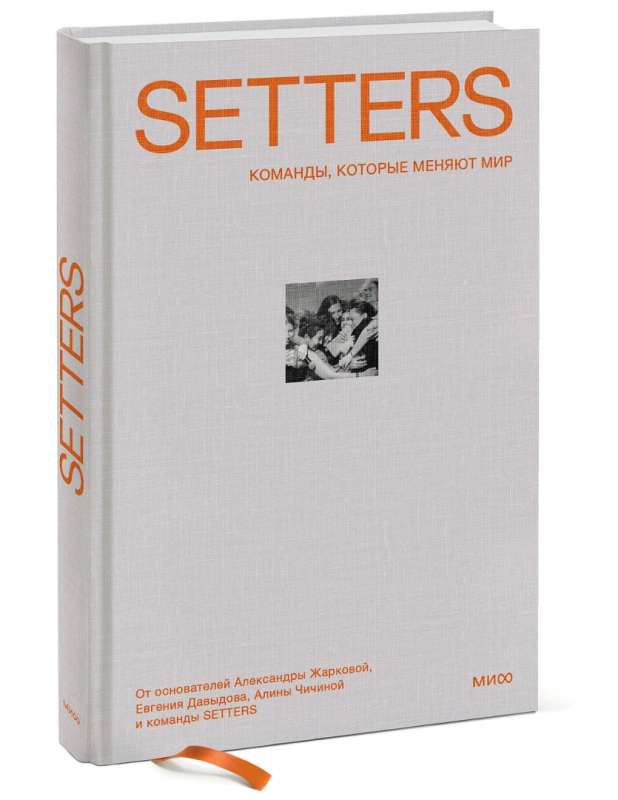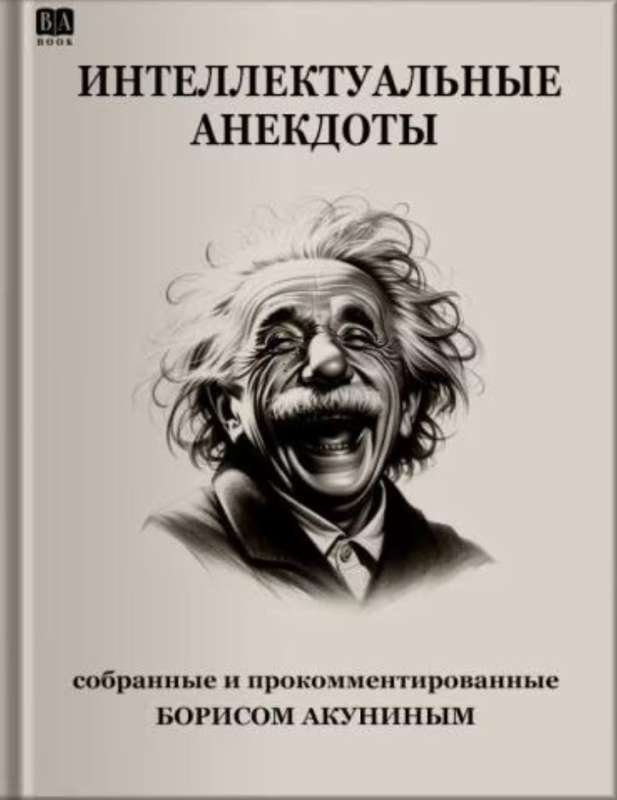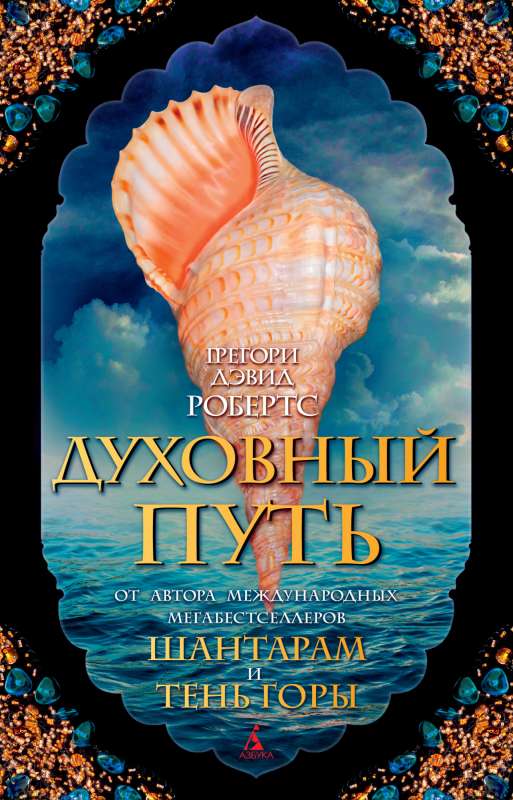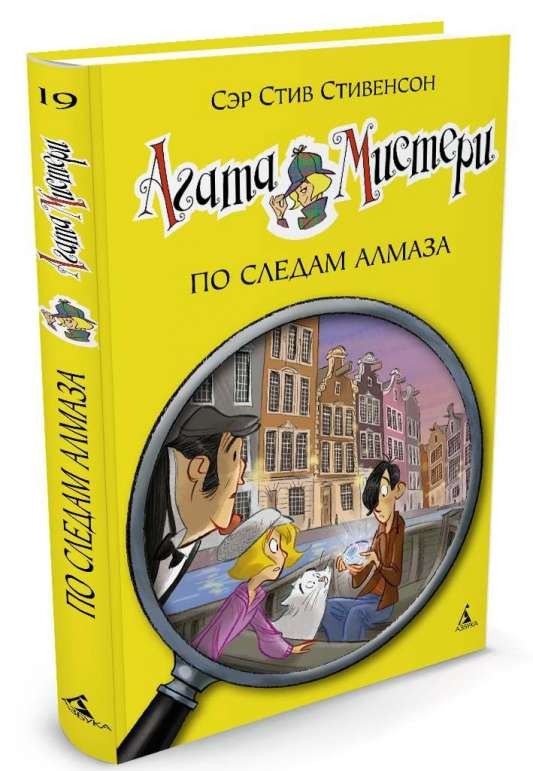Analysts. Nicomachean Ethics
Aristotle is one of the greatest thinkers of antiquity, a student of Plato and educator of Alexander the Great, who summarized the experience of the classical era of ancient Greek philosophy in his works and had a huge influence on... the development of European and world culture, an encyclopedist who stood at the origins of modern science. Aristotle developed one of the first universal models of the universe and an integral system of scientific knowledge, covering a variety of spheres of human life, outlined a range of concepts and introduced terminology that are still used in the philosophical lexicon and largely determine the guidelines and horizons of modern scientific thinking. The publication includes the most important logical treatises of Aristotle, which comprised the “Organon” (“Categories”, the first and second “Analytics”, “On Interpretation”, etc.), as well as “Nicomachean Ethics”, a treatise addressed to problems of morality, in which the philosopher poses and comprehensively analyzes the most important questions of human existence: what is good, happiness and justice? In addition, the book includes “Physics” - a fundamental treatise by Aristotle, which serves as a kind of introduction to all other natural scientific works of the thinker, including those that today we classify as biology and psychology. Aristotle's Physics has little in common with the science that is called physics in our time, nevertheless, this treatise is still considered one of the highest achievements of human thought in relation to the science of nature.
Author: Аристотель
Printhouse: Azbuka
Series: Non-Fiction. Большие книги
Year of publication: 2024
ISBN: 9785389241039
Number of pages: 736
Size: 215x145x35 mm
Cover type: твердая
Weight: 805 g
Delivery methods
Choose the appropriate delivery method
Pick up yourself from the shop
0.00 £
Courier delivery
